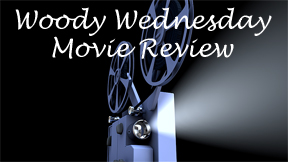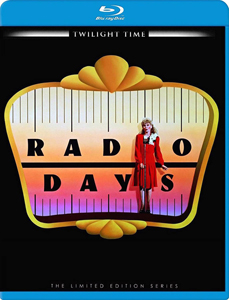Having expressed his nostalgic feelings for Manhattan (“Manhattan”) and old-time cinema (“Play It Again, Sam” and “The Purple Rose of Cairo”), Woody Allen next pens a filmic love letter to radio in “Radio Days” (1987). An understated yet deftly crafted film, it gives us a good grounding in the ubiquity of radio in people’s lives in the 1930s and ’40s while never being overtly about the industry.
A time in their lives
In fact, “Radio Days” isn’t precisely about anything, and therefore it’s about everything. Writer/director/narrator Allen gives us snippets of everyone’s life in an extended-family household in New York. This isn’t explicitly biographical, but the time period and location does match up with Allen’s own upbringing.
His character, Joe, narrates from present day and is played as a kid by Seth Green. Also, the house is near a roller-coaster, calling to mind Alvy Singer’s childhood in “Annie Hall.”

“Radio Days” (1987)
Director: Woody Allen
Writer: Woody Allen
Stars: Mia Farrow, Dianne Wiest, Seth Green, Julie Kavner, Michael Tucker, Woody Allen (voice)
While many of Allen’s films are partly autobiographical, this one comes closest to a full autobiography, or at least it gives that sense. Hearing Allen’s tones in voiceover, I assume a wry joke will cap off every observation, but that’s never the case. As such, Allen signals that he’s being serious and heartfelt, not cynical.
Sweetly nostalgic
Joe says he pictures his childhood neighborhood on a rainy, windswept day because that’s when it was at its most beautiful. We don’t need to decipher whether he’s trying to be funny. He’s not – or at least he’s not going beyond the point wherein life is naturally funny. (Some might disagree about the serious nature of “Radio Days,” since it’s classified as a “comedy” on IMDb. But suffice it to say that it’s not slathered with pratfalls and setups.)
I like how the tone is not overtly comedic, partly because it helps the film stand out among Allen’s oeuvre. In other ways, “Radio Days” is another case of Woody tapping the usual talent in his circle to make a solid film with seeming effortlessness.
I’m somewhat surprised that this is Santo Loquasto’s first Allen film as a production designer, but not surprised the director stuck with him in the future. Art director Speed Hopkins is back from a couple previous Woody entries. The set decorators and costumers are familiar names, and the lens of Carlo di Palma (“Hannah and Her Sisters”) ties everything together.
No one steals the show
No one stands out as an obvious main character. Joe is the audience surrogate, but not in the overt way of the kid in “A Christmas Story.” We get a bit of this person, a bit of that person. No one has a robust character arc, but we like learning about their lives and behaviors; an uncle loves fish, an aunt loves South American dance music, the neighbors are Communists, and the world keeps turning.

Dianne Wiest slightly emerges from the pack as Joe’s aunt, as her naturally sad face is perfect for a gal longing to find Mr. Right when so many eligible bachelors are off at war. And this is a rare chance to see Julie Kavner (“The Simpsons’ ” Marge) in a major live-action role, playing Joe’s mom.
Mia Farrow gets a showy role – in a movie that’s not generally showy – as a coat-check girl who moves up in the radio world after taking classes in diction to lose her thick New Yawk accent. There’s no question this is an Allen film, as the cast also includes Danny Aiello, Jeff Daniels, Larry David, Diane Keaton, Tony Roberts and Wallace Shawn.
None of them steal the show – and that’s a good thing. Radio remains the star as we get glimpses of the many things it offered, from “The Masked Avenger” (voiced by Shawn, amusingly) to news reports.
In a centerpiece moment, the family listens to the report of a dead girl found in a well; the father (Michael Tucker) hugs Joe, who he had previously been whipping with a belt for some household transgression. The only thing missing is an example of how radio brought baseball games into people’s homes.
“Radio Days” could fairly be labeled insubstantial; it’s about everyone’s taken-for-granted appreciation of the medium, and it doesn’t try to say more. It needs to add a New Year’s celebration just to have an ending that feels natural. But “Radio Days” is so well crafted that I like it for what it is, not needing it to be more.

